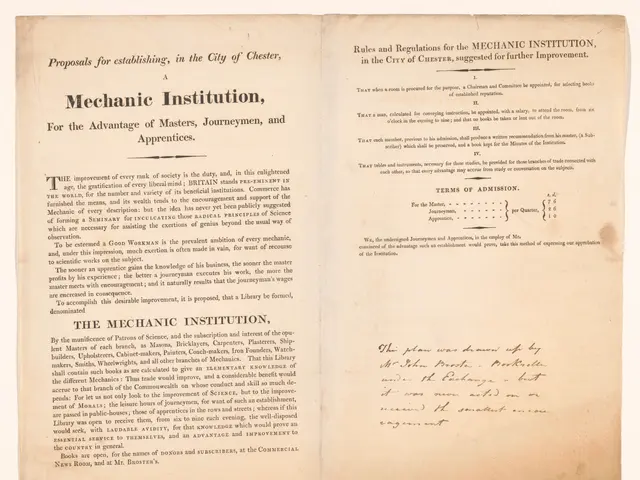US Aerospace Industry Faces Potential Tariff Chaos
Aerospace sector in the U.S. remains uneasy with tariffs on the horizon
The aerospace industry in the United States is sweating over the proposal for new tariffs, with major airlines and manufacturers crying foul play. These tariffs, spearheaded by the Trump administration, threaten to disrupt the sector's healthy trade surplus, which it's managed to maintain for over seven decades.
After receiving a request from President Donald Trump, Commerce Secretary Howard Lutnick initiated an investigation on May 1, exploring the possibility of imposing tariffs ranging between 10% and 20% on civil aircraft and parts, including engines.
The sector quickly communicated its reluctance towards these looming tariffs. The Aerospace Industries Association (AIA) voiced concern in a letter to Lutnick, stating that broad tariff or non-tariff trade barriers could potentially set back decades of industrial progress and negatively impact the domestic supply chain.
By the end of June, interested parties were supposed to voice their opinions. But just a day later, Lutnick announced Washington's ambition to establish the norm for aircraft part tariffs by the end of this month. "We will use these tariffs for the betterment of American industry," Lutnick declared.
However, industry groups like the AIA and Airlines for America (A4A) are wary that these tariffs could unintentionally harm US manufacturers.
Tariffs: Not the Pill for a Healthy Industry
"Unlike other industries, the civil aviation manufacturing industry prioritizes domestic production of high-value components and final assembly," AIA highlighted, indicating it already generates a trade surplus of $74.5 billion and invests $34.5 billion in research and development.
In response to Lutnick, the A4A emphasized the benefits the international Agreement on Trade in Commercial Aviation (ATCA) has brought, eliminating tariffs and trade barriers over nearly half a century. "The US civil aviation industry is the success story that President Trump is looking for," the A4A emphasized.
A full 84% of production is already American, the A4A stated, pointing out that the sector employs more than 2.2 million people in the United States across over 100,000 companies. Manufacturers warn potential tariffs could damage this well-oiled machine, like sand jamming its gears after decades of smooth operation.
Tariffs might also upset the ultra-sensitive supply chain, which is still recovering from the Covid-19 pandemic.
Competitive Disadvantage
In an address to the International Air Transport Association (IATA), Willie Walsh, its head, appealed to keep aerospace out of trade wars. Meanwhile, AIA warned that finding suppliers capable of meeting rigorous safety certifications could take up to a decade, while integrating new suppliers and expanding capacity is complex, timely, and costly.
Delta Air Lines contends that the proposed tariffs would impede its ability to maintain its growth trajectory. "If component parts incur tariffs upon entering the United States, Delta will be at a competitive disadvantage to foreign competitors," the airline cautioned.
Delta CEO Ed Bastian expressed concern in late April, emphasizing that the airline "will not be paying tariffs on any aircraft deliveries we take." However, if the tariffs are imposed, Delta warns it may be forced to cancel existing contracts and reconsider future ones.
- The Aerospace Industries Association (AIA) has highlighted that the civil aviation manufacturing industry prioritizes domestic production, currently generating a trade surplus of $74.5 billion and investing $34.5 billion in research and development.
- Delta Air Lines has cautioned that the proposed tariffs would impede its ability to maintain its growth trajectory, stating that if component parts incur tariffs upon entering the United States, Delta will be at a competitive disadvantage to foreign competitors.
- In response to the potential tariffs, the Aerospace Industries Association and Airlines for America (A4A) have expressed concerns about the impacts on the domestic supply chain, warning that it could take up to a decade to find suppliers capable of meeting rigorous safety certifications.
- The ultra-sensitive supply chain in the aerospace industry is still recovering from the Covid-19 pandemic, and tariffs could potentially upset this delicate recovery process.






